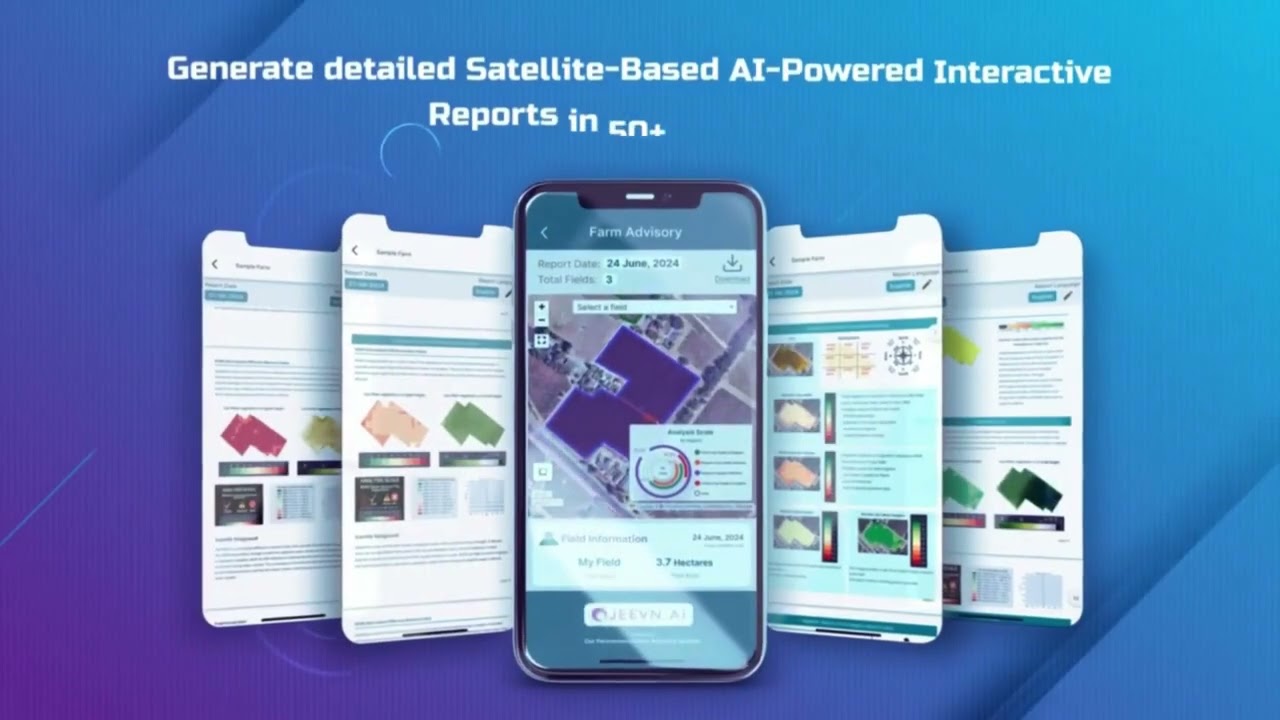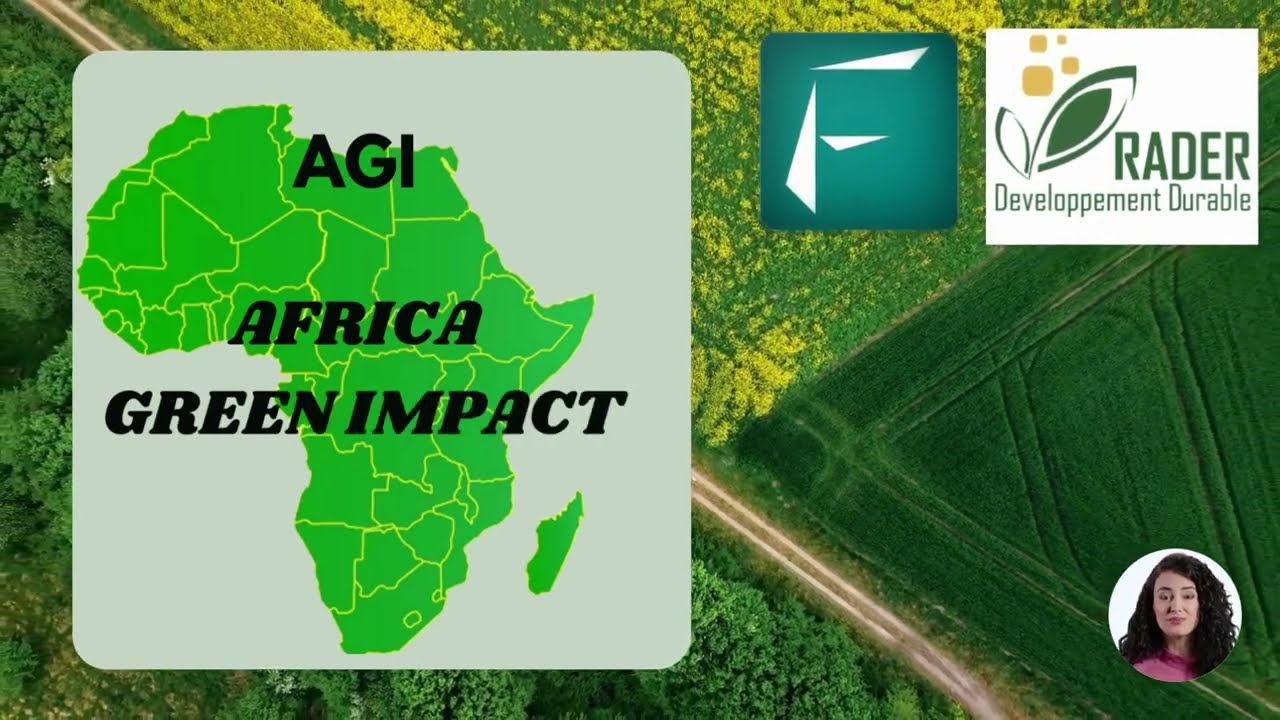Indian Agriculture Sector Overview 2025: Key Insights
“By 2025, over 50% of Indian farmers are expected to access digital platforms for agricultural information and services.”
Introduction: Transforming Agriculture in India and Nigeria
The indian agriculture sector overview 2025 and nigeria agriculture sector overview 2024 reveal profound transformations, as both countries embrace reforms, digital innovations, and international collaborations to enhance their agricultural productivity and ensure food security. By June 2025, these nations are not just responding to today’s challenges—they are proactively positioning their agricultural sectors for sustainability, growth, and global competitiveness. This detailed sector overview draws on the latest policy announcements, technological integrations, and multi-billion dollar initiatives shaping the future of farming in India and Nigeria, with a special spotlight on the role of platforms like Farmonaut in powering this agricultural revolution.
India Agriculture Sector Overview 2025: Driving Modernization & Resilience
As of 2025, India’s agricultural sector remains a cornerstone of the economy, employing approximately 54.6% of the population and contributing around 19.9% to the country’s Gross Domestic Product (GDP)
(Source). The union government’s initiatives, reforms, and sizable budget allocations are steering Indian agriculture toward modernization, sustainability, and technological integration. Here’s an in-depth look at the main drivers of change, and the breakthroughs shaping the indian agriculture sector overview 2025.
Key Policy Reforms, Initiatives & Funding: The Backbone of India Agriculture Sector 2025
The Union Budget 2025 and recent policy reforms have launched Indian agriculture into a new era:
-
Substantial Increase in Minimum Support Prices (MSP): The government announced significant MSP hikes for several key crops:
- Arhar (pigeon pea): +59%
- Bajra (pearl millet): +77%
- Masur (lentil): +89%
- Rapeseed: +98%
These steps aim to enhance income for farmers, reduce dependency on imports, and stabilize market prices, ultimately ensuring food security and sustainable livelihoods.
- Boosted Agriculture Budget & Funding: More than ₹1.75 trillion allocated for agriculture and allied activities in 2025-26, marking a remarkable 15% increase over the previous year (Source).
- National Level Initiatives: Expansion of Pradhan Mantri Kisan Samman Nidhi (PM-KISAN) for direct support to farmers, and enhanced focus on Farmer Producer Organizations (FPOs) for collective market access and bargaining power.
Video: Regenerative Agriculture 2025 ? Carbon Farming, Soil Health & Climate-Smart Solutions | Farmonaut
Technological Advancements & Digital Agriculture in the Indian Agriculture Sector Overview 2025
India is witnessing an unprecedented wave of digital innovation in farming practices. The Digital Agriculture Mission (2021-2025) underscores technology’s central role in transforming operations—from the establishment of digital infrastructure, to the use of advanced technologies:
- AgriStack: A comprehensive digital repository providing farmers with vital information, crop advisory services, weather forecasts, and market analytics, boosting decision-making at every level ([read more](https://en.wikipedia.org/wiki/Artificial_intelligence_in_India?utm_source=openai)).
-
Integration of Artificial Intelligence, Blockchain, and IoT:
- AI and Machine Learning: Enhance crop prediction, disease diagnosis, and supply chain optimization.
- Blockchain: Strengthens traceability and credibility in agri supply chains.
- Remote Sensing & GIS Technologies: Enable precision agriculture, monitoring soil health and irrigation needs.
Farmonaut’s digital platform aligns perfectly with this transformation—our carbon footprinting solution, for example, empowers Indian agribusinesses to monitor, reduce, and ensure sustainability in real time.
- Mobile & Cloud-Based Apps: Over 50% of Indian farmers are projected to access digital agriculture platforms by 2025, supporting instant access to updates, prices, and government schemes.
Video: How AI Drones Are Saving Farms & Millions in 2025 ? | Game-Changing AgriTech You Must See!
Our API and developer docs make it easy for integration of satellite and weather data into any digital agri system or portal, powering both smallholder and large-scale decision making.
Climate-Resilient Agriculture: Innovations for Sustainability
Climate change remains an urgent challenge for farmers in India. This has led to nationwide adoption of climate-resilient and sustainable agriculture practices as prioritized under the National Innovations in Climate Resilient Agriculture (NICRA) initiative (Source):
-
Smart Irrigation & Water Management:
Expansion of Pradhan Mantri Krishi Sinchayee Yojana (PMKSY) and micro-irrigation schemes—especially in drought-prone regions—improves water use efficiency and reduces input costs. -
Adaptive Cultivation Practices:
Incorporation of drought-resistant crop varieties, soil conservation techniques, and GPS-guided sowing for optimized land utilization. - Carbon Sequestration: Farmonaut’s carbon monitoring solutions guide farmers to adopt sustainable, low-impact practices and track their carbon footprint.
Video: 2025 Veg Equipment Boom ? Smart Farming, AI Telematics & $2.3B Market Powered by Farmonaut
Farmer Empowerment & Market Access: Next-Gen Farming in Indian Agriculture Sector 2025
The government’s initiatives in 2025 focus on empowering farmers and redefining marketplace dynamics:
- Direct Income Support: PM-KISAN disburses incomes directly to farmers, stabilizing household economics and encouraging innovation.
- FPO Expansion & eNAM Integration: Over 10,000 Farmer Producer Organizations (FPOs) are now part of eNAM, India’s electronic National Agriculture Market, ensuring that producers access competitive prices and unified trade (Source).
- Digital Traceability & Supply Chain Transparency: Cutting-edge platforms, such as Farmonaut’s traceability solution, harness blockchain for full product journey visibility—from farm to market—resulting in higher trust and better market prices.
Learn more about Farmonaut’s technology for agricultural traceability here and discover how we are helping build global trust for India’s agri-exports.
Video: Farmonaut – Revolutionizing Farming with Satellite-Based Crop Health Monitoring
Precision Agriculture & Farmonaut: Empowering Indian Agriculture Sector 2025
As the indian agriculture sector overview 2025 highlights a surge in technological adoption, Farmonaut stands at the forefront, providing advanced, satellite-based solutions accessible via web, Android and iOS apps and APIs. Our mission is to ensure every farmer—whether individual smallholder, FPO, or corporate—can harness affordable, data-driven precision agriculture for their unique context.
Key Technologies & Benefits
- Satellite-Based Crop Health Monitoring: Real-time vegetation health and soil moisture analytics for optimal irrigation, fertilizer, and pest management decisions.
- AI-Driven Advisory (Jeevn AI): Instantly delivers weather-adaptive field advice, yield forecasts, and best-practice alerts personalized to crop, region, and stage—empowering resilient responses to climate change.
- Blockchain-Enabled Traceability: Secure, transparent supply-chain tracking for high-value and export-oriented agribusinesses, reducing fraud and boosting export confidence.
- Fleet & Resource Management: Streamline logistics, reduce costs, and increase machinery safety for large agribusinesses and government sectors—learn more here.
- Carbon Footprinting & Sustainability Analytics: Track, benchmark, and reduce environmental impact—aligning with government and international sustainability mandates (details here).
Explore our full suite with the

or try our intuitive mobile experiences:


Video: Farmonaut at 6 Years: How We’re Transforming Farming in 40+ Countries with Satellite Technology
Video: Farmonaut | Connect Your Farms With Satellites in Just 2 Minutes Using WhatsApp
Nigeria Agriculture Sector Overview 2024: Leapfrogging into Tech-Driven Growth
The nigeria agriculture sector overview 2024 demonstrates a similar trajectory of ambitious reforms, technological advancements, and strategic international collaborations. By 2024, Nigerian agriculture is pivotal to the nation’s economy, employing a significant share of the population (mainly in rural areas) and contributing robustly to the nation’s GDP (Source).
Video: Nigeria Non-Oil Export Boom 2025 ? 4,600 Hybrid Seedlings, NEPC & AfCFTA AgriTech Rise
Major International Collaborations & Investment in 2024-25
- Brazil-Nigeria $1 Billion Agreement: A multi-sector, landmark partnership announced in June 2025 is set to deploy mechanized farming equipment, launch pan-Nigerian training programs, and establish service centers for strengthening food security and advancing commercial farming (Source).
- Diversification from Subsistence to Commercial Agriculture: Fast-tracking mechanization, improving farmer access to technology and markets, and modernizing value chains.
- African Continental Trade Opportunities: Positioning Nigeria as a leader in agri-exports within Africa and globally.
“Nigeria’s agriculture sector saw a 30% increase in tech-driven investments between 2020 and 2024, accelerating modernization.”
Infrastructure, Fertilizer, and Market Transformation in Nigeria Agriculture Sector Overview 2024
- Dangote’s Fertilizer Expansion: In 2024-25, Aliko Dangote announced a $2.5 billion investment to scale up the Lagos fertilizer plant, aiming to make Africa self-sufficient and dramatically reduce fertilizer imports (currently 6+ million metric tons annually) (Source).
- Transport & Logistics Upgrades: Improved farm-to-market roads and irrigation infrastructure to boost agricultural efficiency, cut production costs, and stabilize market prices.
- Enhanced Access to Inputs: Bulk procurement and distribution of seeds, fertilizers, and machinery supported by new credit lines and government-backed programs.
- Digital Integration: Mobile apps and platforms are connecting millions of farmers to advisory services, lending, and weather updates—notably improving resilience and productivity.
Video: AgriTech Solutions for Africa & Nigeria | Satellite Crop Health Monitoring Explored
Key Challenges & Climate Change Impacts in Nigeria Agriculture Sector Overview 2024
- Water Scarcity & Climate Stress: Climate change has drastically affected water sources, especially in northern regions like Sokoto, making irrigation a critical challenge.
- Food Insecurity: More than 31 million Nigerians face food insecurity, pushing the government to declare a food security emergency. Plans to activate 500,000 hectares for farming have been announced but await full implementation (Source).
- Weak Market Linkages: Farmers in remote areas often struggle with price exploitation, inadequate market information, and limited bargaining power.
- Pest and Disease Outbreaks: Inadequate extension services hinder rapid responses to emerging threats.
Video: Farmonaut – Revolutionizing Farming with Satellite-Based Crop Health Monitoring
Comparative Innovations & Reforms Table: India vs Nigeria
| Key Area | India (2025 Est.) | Nigeria (2024 Est.) |
|---|---|---|
| Digital Adoption Rate (%) | 50%+ of farmers accessing digital agricultural platforms; widespread mobile & cloud-based app usage | ≈28% of farmers with access to mobile-based advisory; strong growth due to new investments (30% YoY tech investment increase) |
| Estimated Market Size (USD Billion) | $30-$35 billion (Indian agritech sector projection for 2025) | $18-$20 billion (farmgate value, with rapid expansion in private and international investment) |
| Major Policy Reforms (2023-2025) |
|
|
| Exports Growth (%) | 8-10% annual growth in agri-exports projected, backed by digital traceability and unified e-markets | 7-12% yearly growth in non-oil agricultural exports (notably cashew, cocoa, sesame) |
| Technological Implementation Level | High—AI, blockchain, satellite & GIS, mobile apps, real-time advisory platforms in mainstream use | Moderate—Rapid adoption of digital farm management, mobile advisory, and mechanization in progress |
| International Collaborations (2025 outlook) |
|
|
Recent Developments in Indian and Nigerian Agriculture
-
Nigeria and Brazil sign $1 billion agreement to boost agriculture
-
From shortage to surplus: India pours record rice crop into ethanol
-
Nigeria’s Dangote aims to end Africa’s fertiliser imports
Farmonaut Products & Smart Resource Links
Farmonaut offers modular, satellite-powered agricultural management services for every stakeholder in the sector:
-
Precision Monitoring APIs: For developers and agribusinesses, our API portal enables direct embedding of satellite crop, weather, and resource data.
View the API Developer Docs - Crop Loan and Insurance: Use satellite-verified farm assessments to simplify and secure agricultural financing and insurance processes.
- Traceability: Secure global food supply chains with blockchain-enabled produce traceability.
- Fleet Management: Reduce costs and improve fleet logistics with real-time agricultural vehicle management.
- Large-Scale Farm Operations: Manage the largest plantations, forests, and cooperatives with our enterprise-scale management solutions.
- Crop & Forest Advisory: Optimize every seasonal decision-making cycle (crops, forest, or plantations) with satellite support and Farmonaut advisory.
Video: Farmonaut at 6 Years: How We’re Transforming Farming in 40+ Countries with Satellite Technology
Frequently Asked Questions (FAQs) on Indian Agriculture Sector Overview 2025 & Nigeria Agriculture Sector Overview 2024
Q1: What are the transformative reforms in the Indian agriculture sector by 2025?
Answer: Key reforms include substantial MSP hikes for staple crops, digital infrastructure rollout via AgriStack, major increase in agriculture funding (₹1.75 trillion), expansion of FPOs and eNAM, and adoption of AI, blockchain, and GIS technologies to enhance productivity, sustainability, and transparency.
Q2: How is technology reshaping the Nigeria agriculture sector in 2024?
Answer: Nigeria’s agriculture transformation is driven by rapid adoption of digital advisory platforms, mechanized farming (via the $1 billion Brazil deal), fertilizer self-sufficiency programs, mobile information access, and investments in irrigation and logistics infrastructure to mitigate climate risks.
Q3: What is Farmonaut and how can it help farmers in India and Africa?
Answer: Farmonaut is a global agricultural tech platform that provides affordable, satellite-driven precision agriculture, crop health monitoring, blockchain traceability, and sustainability analytics for farmers, agribusinesses, and government agencies via web, mobile apps, and APIs.
Q4: What impact will climate change have on agriculture in India and Nigeria?
Answer: Climate change will challenge water security, crop yields, and food supply chains in both countries. India’s response includes micro-irrigation, drought-resistant crops, and climate-smart advisories (including those powered by Farmonaut). Nigeria is investing in fertilizer, irrigation, and international partnerships to address food security.
Q5: How do Indian and Nigerian policies support digital farming for smallholders?
Answer: India’s eNAM, PM-KISAN, FPO integration, and digital agriculture mission ensure smallholder access to markets, credit, and real-time advisory. Nigeria’s agri-digitalization and international funding also boost inclusion, mechanization, and knowledge-sharing for millions of smallholders.
Conclusion & Outlook: Towards Resilient, Digitally Powered Agriculture
The indian agriculture sector overview 2025 and nigeria agriculture sector overview 2024 present a future where technology and policy reforms are inseparable from economic growth, food security, and sustainable development. While both nations face daunting challenges—from climate volatility to infrastructure gaps—their proactive measures, international collaborations, and bold technological advancements offer promising blueprints for transformation.
- India’s experience with AgriStack, precision monitoring, and market reforms shows how digital integration can galvanize innovation, empower farmers, and make global agri-exports more competitive.
- Nigeria’s robust partnerships, fertilizer expansion, and shift towards commercial, tech-driven farming indicate that bold investments—in both policy and infrastructure—can accelerate sector modernization even under strong climate and financial constraints.
Platforms like Farmonaut give every farmer, agribusiness, and policymaker the tools to harness these shifts—combining satellite data, machine learning, and blockchain for a more transparent, productive, and resilient agricultural future.
Stay ahead—embrace the future of agriculture with digital intelligence, climate-adaptive solutions, and real-time, actionable insight. Explore Farmonaut’s web and mobile platforms to join this transformation.
For more on climate resilience, sustainability, and market innovations in Indian and Nigerian agriculture, bookmark this page and follow Farmonaut’s mission to democratize precision farming for millions worldwide.














